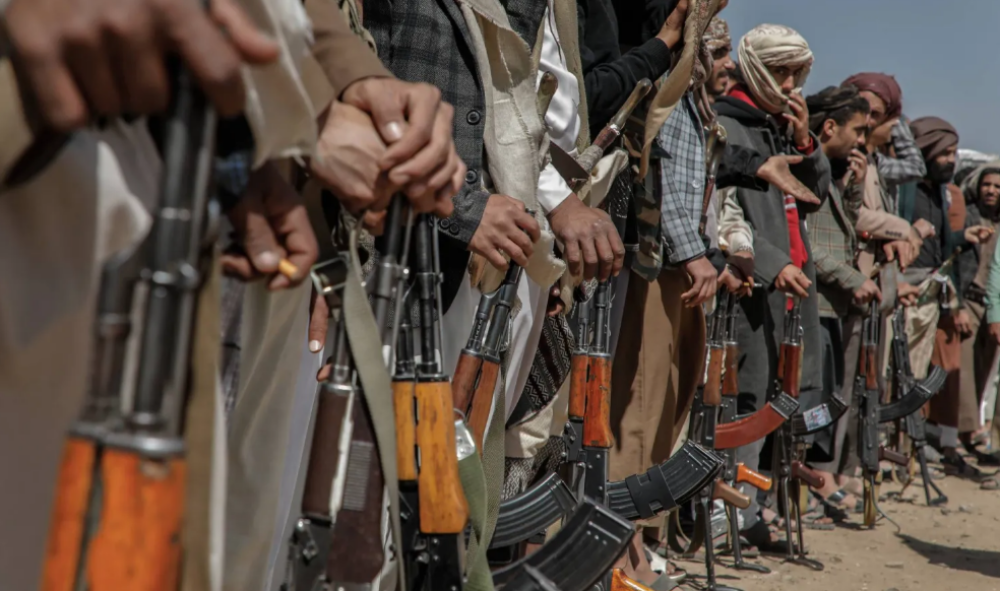UN Report: Only 3% of Yemenis Receive Salaries in Houthi-Controlled Areas


Only 3% of residents in Houthi-controlled areas in Yemen rely on their monthly salaries due to suspended civil servant payments while 54% depend on casual labor and 18% on food aid, according to recent data distributed by the UN.
The Food and Agriculture Organization warned of increased flour prices just before the holy month of Ramadan after the Houthis banned wheat flour imports while ports under the militia’s control are threatened by Israeli strikes.
In its Yemen Market and Trade Bulletin January 2025, FAO said that despite price controls in Houthi-controlled areas, the average Minimum Food Basket (MFB) cost in US dollar is slightly higher there, and residents have less purchasing power compared to those in areas under the legitimate government control.
“Income sources differ significantly,” the agency said, adding that “35% in government-controlled areas rely on government salaries (though payments are intermittent), while in Houthi areas, 54% depend on casual labor and 18% on food aid, with only 3% relying on salaries due to suspended civil servant payments.”
FAO showed that the recent wheat flour import ban, coupled with Ramadan's peak demand, could drastically increase MFB costs in the coming months.
Meanwhile, casual labor wages saw slight increases in government-controlled areas and declines in Houthi-controlled areas during January 2025, reflecting minimal post-harvest labor demand.
“Year-on-year, wages are up 6% in government areas but continue to decline in Houthi areas,” the agency said.
It added that while wages in the government-controlled areas are 21% above the 3-year average, and even though wages in areas under Houthi control are above average, laborers in both regions struggle to afford basic food items due to soaring food prices (38% MFB increase).
The FAO report said the performance and efficiency of northern ports, including Hodeidah, As-Salif, and Ras Isa, has been impacted by four Israeli airstrikes between July and December 2024, leading to reduced capacity and use of manual unloading, potentially affecting import volumes.
Conversely, it said, southern ports saw a 276% increase in food imports compared to January 2024 and a 246% increase compared to December 2024.
However, fuel imports at southern ports decreased significantly in January 2025, down 32% and 59% compared to January and December 2024, respectively.
Also, FAO said that except for sunflower cooking oil (up 3%) and imported kidney beans (up 8%), staple cereals and other basic food items (Basmati rice and wheat flour) remained relatively stable month-on-month across Yemen.
However, compared to January 2024, food prices are higher in government-controlled areas (up 6-27%) due to currency devaluation and increased fuel costs.
FAO showed that the decline of the currency in government-controlled areas is largely attributed to the sharp drop in oil and gas exports, resulting in significant foreign exchange losses.
The UN agency said a Ministry of Industry and Trade study estimates Yemen's annual wheat and flour import bill at $700 million. In January 2025, most imported food and fuel items saw sharp declines compared to the previous year, with the exceptions of diesel (up 50%) and wheat grains (up 10%).
Sugar imports decreased the most (82%), followed by petrol (30%), cooking gas (29%), and rice (25%).
FAO concluded that given the continued currency collapse and rising fuel prices in government-controlled areas, coupled with Ramadan, seasonal events, and the flour import ban, prices for basic food items (flour, wheat, cooking oil, sugar), livestock, and labor wages are expected to rise further.
It predicted that this increase in prices will likely reduce food basket affordability.

Abyan – Local sources in Yemen reported that one person was killed and four others injured on Saturday following a collision between a milita…

Ibb – Local sources in Yemen’s Ibb governorate reported that Houthi militias have leased the building of the provincial museum to a con…

Oslo — Yemen is expected to remain one of the world’s most violent conflict zones over the coming year, according to a new report issue…